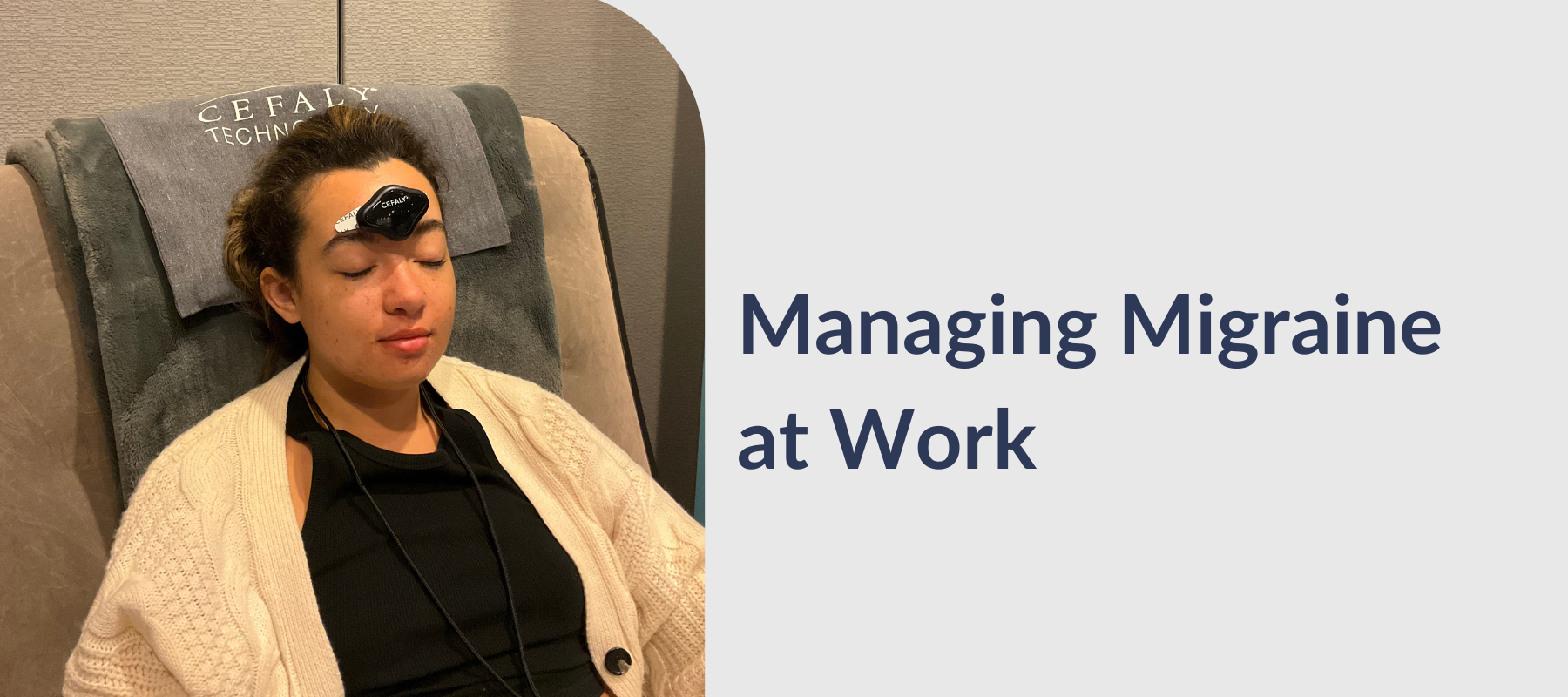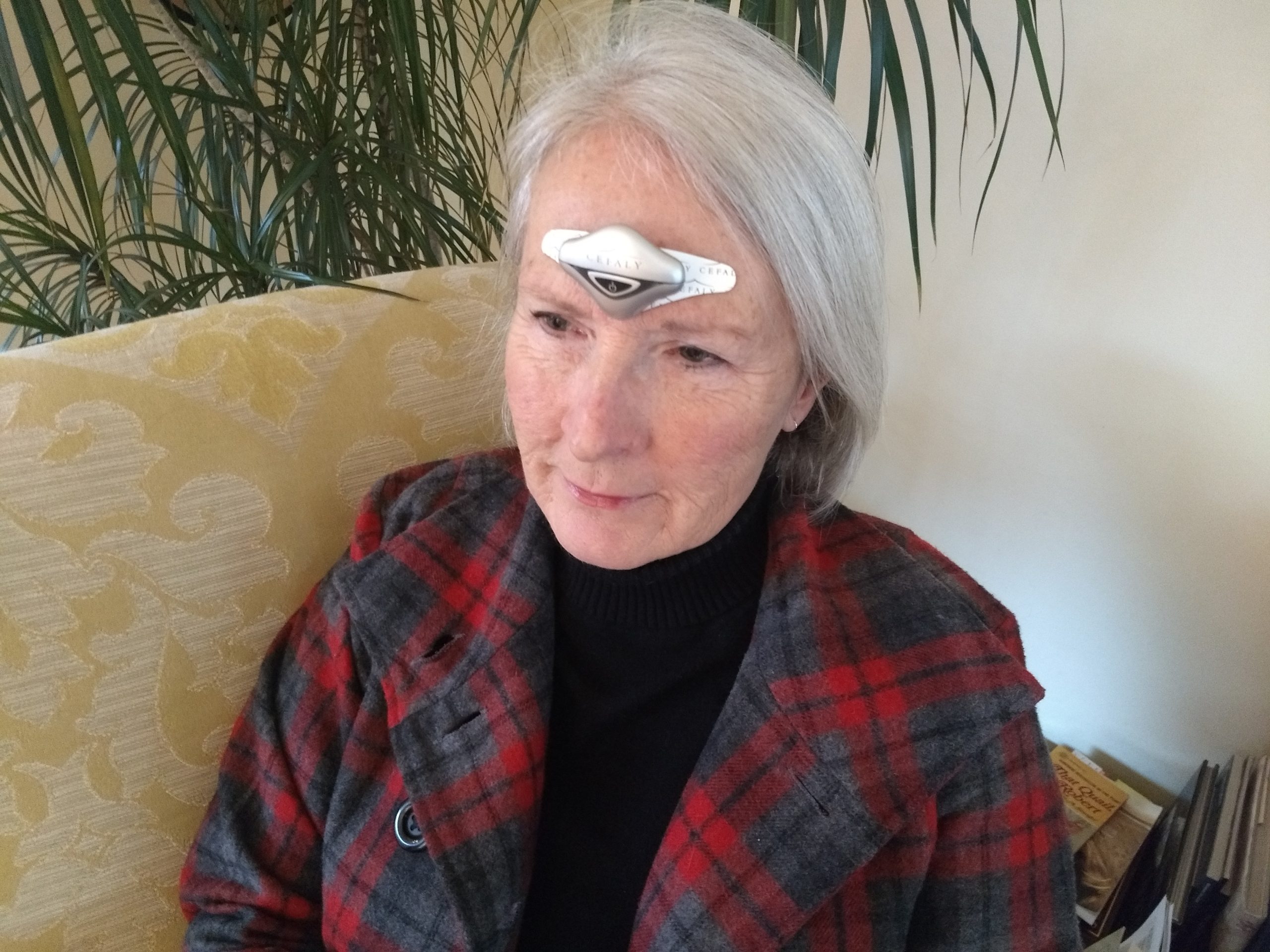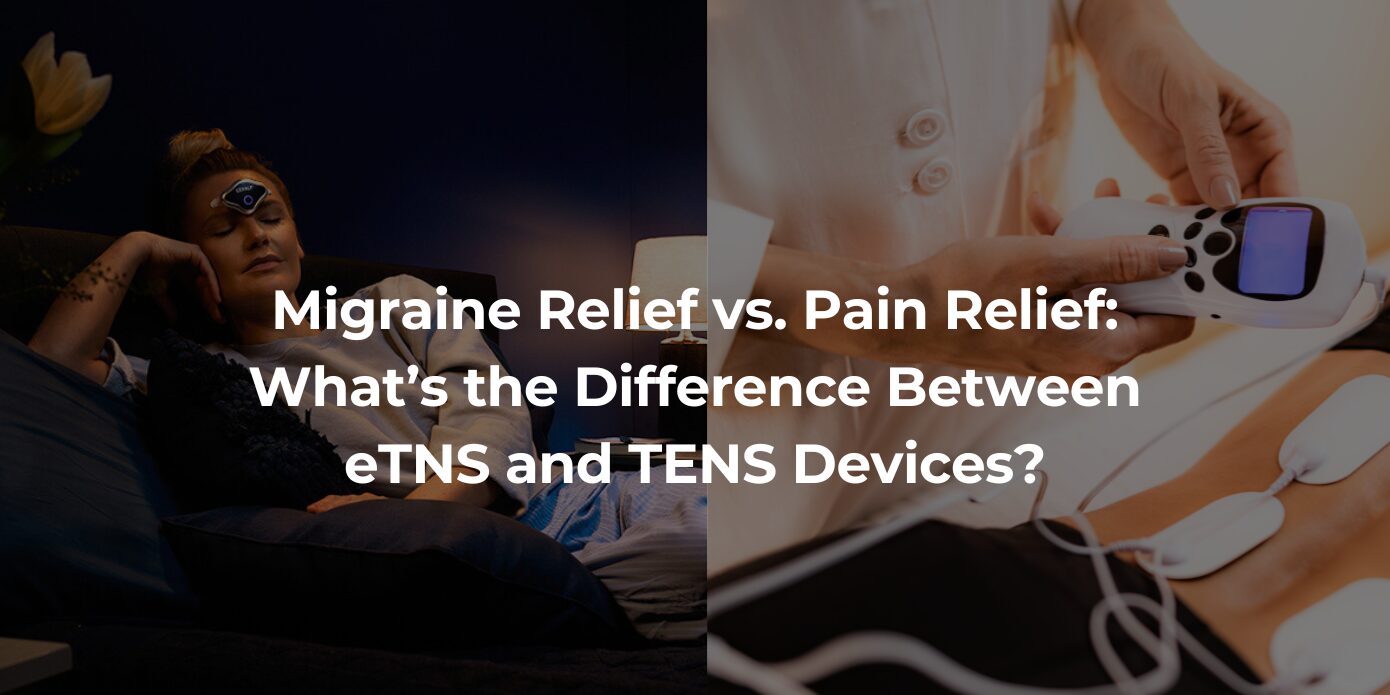Your head is throbbing. It’s hard to focus. The overhead fluorescent lights are painfully bright, and the smell of leftovers heating in the break-room microwave makes you want to throw up.
You’re having a migraine attack at work. The worst part? No one else understands what you’re going through. Your manager expects you to do your job, just like always.
It’s really hard to balance work responsibilities with the realities of migraine. In the My Migraine Voice survey, 84% of respondents who were employed felt their migraine had impacted their professional life. 69% needed at least one day off of work in the last month due to migraine, and the average person took off nearly 7 days.
Asking for migraine disability accommodations may make things better. Here’s some guidance on how to do that! Please know, however, that this isn’t legal advice. If you feel your workplace is discriminating against you because you have migraine, contact the Equal Employment Opportunity Commission (EEOC), and then an employment lawyer.
Is migraine considered an ADA disability?
Yes, migraine can be considered a disability under the Americans with Disabilities Act. The ADA defines disability as “a physical or mental impairment that substantially limits one or more major life activities.” Major life activities can be things like walking, standing, thinking, concentrating, and speaking. Not everyone with migraine has a disability under the ADA.
How does the ADA protect people with migraine in the workplace?
Any employer with 15 or more employees and any division or unit of government must comply with the ADA. That means they:
- Can’t refuse to hire you because your disability prevents you from performing duties that are not essential to the job
- Must provide you with reasonable accommodations to allow you to perform the essential functions of your job, as long as it doesn’t cause undue hardship.
However, you must be able to perform the essential functions of your job with or without reasonable accommodation.
What kinds of migraine accommodations can I ask for?
In the simplest terms, an ADA accommodation for migraine is any change to your work duties or your work environment that makes it possible for you to do your job successfully. Examples of migraine disability accommodations you could ask for:
- A quiet workspace
- Noise-canceling headphones
- The ability to dim the lights in your workspace
- A policy making your workplace fragrance-free
- Permission to take breaks when you need to
- A stool or chair to sit on, if you’re unable to stand during a migraine attack
- The ability to take your medication or use a migraine treatment like CEFALY in the workplace
- Permission to work from home when you feel a migraine attack coming on
Does my employer have to provide the migraine accommodations I ask for?
Your employer is not required to grant your migraine accommodation request if it would be too expensive or difficult for them to do so. For instance:
- If you work in a manufacturing facility where the lights must be bright for safety reasons, your employer would not be required to dim them.
- If you work in a store that sells scented candles, your employer probably would not have to accommodate your fragrance-free request.
- If you request a specialized, ergonomic desk setup that would cost thousands of dollars, your employer probably would not have to purchase it for you.
- If your job requires on-site coverage at certain times, your employer would not have to grant you a flexible or work-from-home schedule.
Get Drug-Free Migraine Relief With CEFALY
Shop Now
90-day money back guarantee
FDA-cleared
financing available
What if my employer says no to migraine workplace accommodations?
The first step is negotiation. Ask why your request was denied. If the answer is “it’s too expensive,” maybe you can find a more affordable solution. If your manager is denying your request without a good reason, you may want to go to HR or your grandboss.
If you’re still unable to get your company to agree to reasonable ADA accommodation requests for migraine, you can file a complaint with the EEOC, the federal agency that enforces the ADA. The EEOC will follow up with you and with your employer. You’re protected from retaliation for filing a complaint. If you don’t get the results you want with the EEOC, you may want to hire a lawyer.
What if work stress is causing my migraine attacks?
That’s a tricky one! In one recent court case (Woolf v. Strada), a man claimed his migraine attacks were triggered by stress at work. As a result his work suffered, causing him to get negative performance reviews. As a migraine work accommodation, he asked to be transferred to a different supervisor or position. Instead, his employer offered him intermittent paid medical leave, then later fired him.
The court ruled in favor of the employer. It found that the employee could not be considered disabled under the ADA simply because he wasn’t able to work for a particular supervisor. To qualify as disabled, he would have to prove that migraine limited his ability to perform a wide range of jobs.
Do I need to disclose my migraine disability at work?
Migraine is a (mostly) invisible disability. You do not have to disclose that you have migraine if you don’t want to! If you think your workplace may discriminate against you, or if you just want to keep it to yourself, you don’t have to say anything.
There are a few exceptions:
- If you want to request migraine disability accommodations, you’ll have to provide details and, most likely, documentation from your healthcare provider.
- If a migraine attack could seriously affect your ability to do your job, and if your safety and the safety of others could be at risk, you should disclose it.
Explaining migraine causes and symptoms to coworkers isn’t in your job description — and honestly, it can be exhausting. But investing some time in educating your manager and peers can pay off in the long run by generating more goodwill and less judgment.
Even if you are naturally private or shy, it’s important to learn how to be a vocal advocate for what you need. To start with, you can explain:
- Migraine is more than a headache; it’s a common but complex neurological disorder.
- What a migraine attack feels like for you
- It’s impossible to predict exactly when an attack will occur, but you typically have them [X] times per month.
- You are receiving treatment for migraine that reduces the severity and/or frequency of attacks.
CEFALY is your migraine ally! Our migraine treatment device is clinically proven, drug-free, and safe. Discover CEFALY for yourself — and bring it to work for relief when you need it. Shop now.














